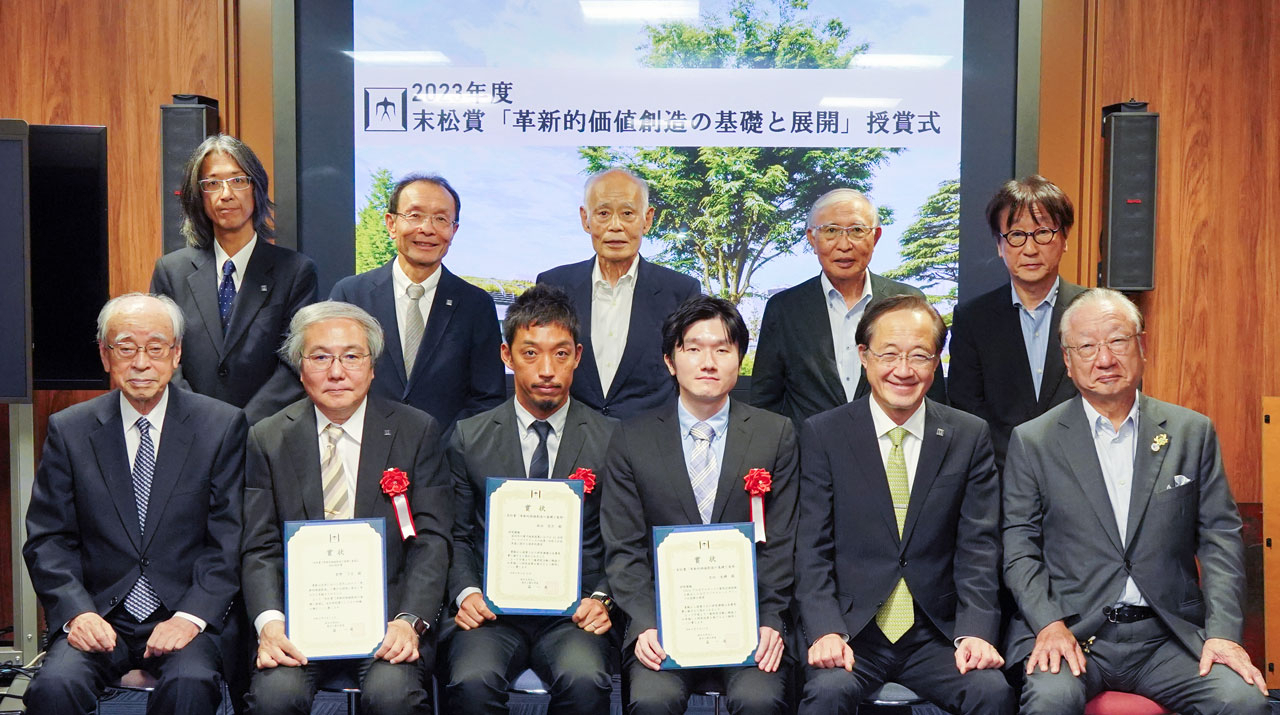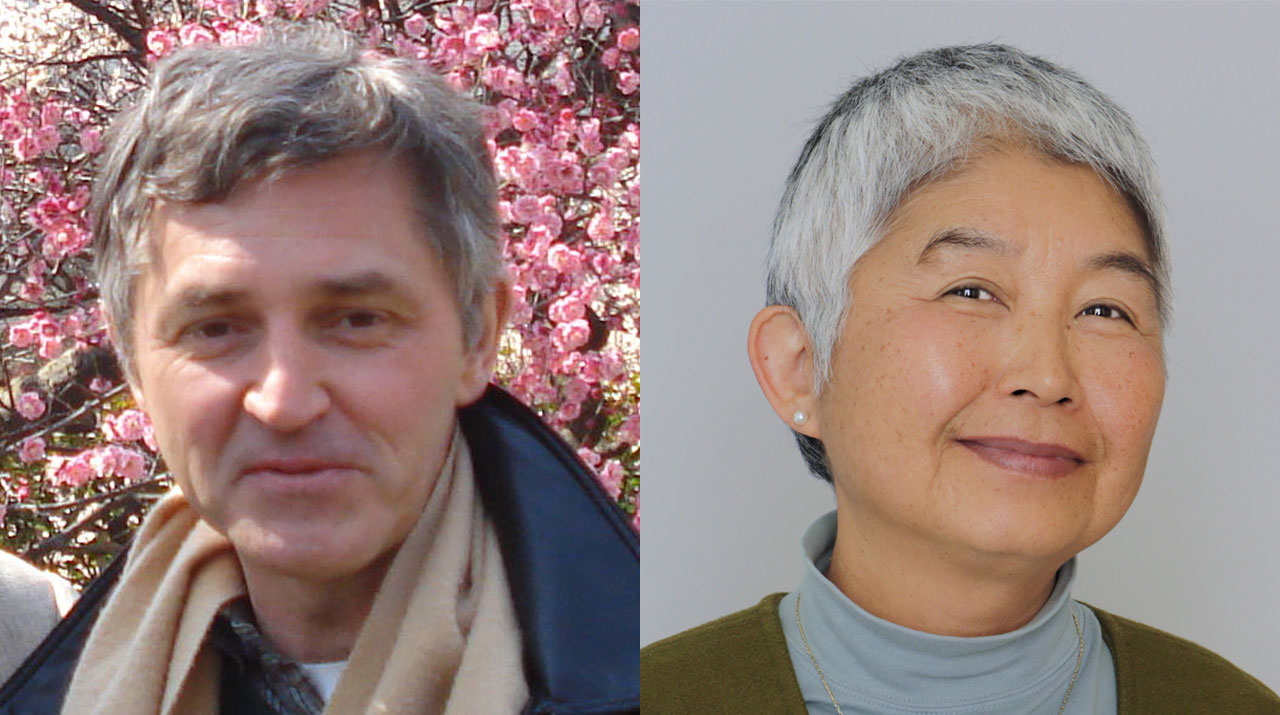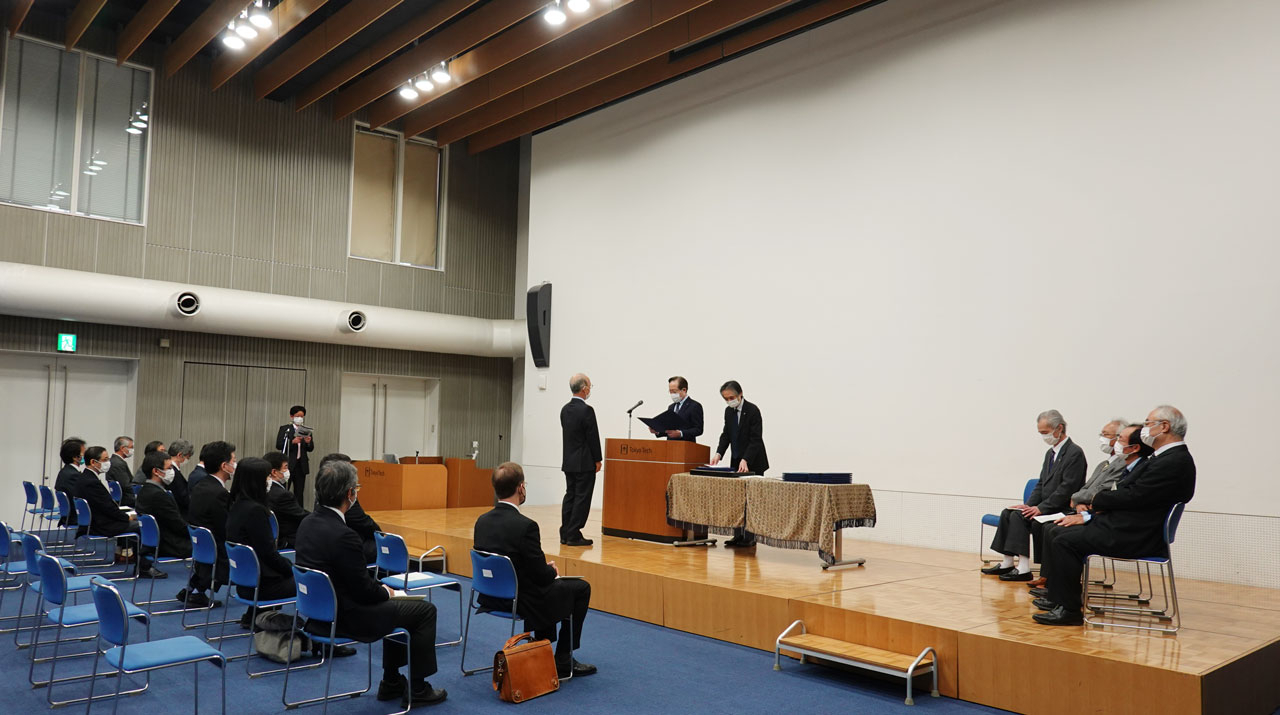Social and Human Sciences News
FY2022 STAR grant recipients selected
Associate Professor Toshiki Sawada of the Department of Chemical Science and Engineering, the School of Materials and Chemical Technology and Associate Professor Kyohhei Kitamura of the Future of Humanity Research Center, the Institute of Innovative Research and Associate Professor Yuta Suzuki of the Department of Social and Human Sciences, the Institute for Liberal Arts have been selected for Support for Tokyo Tech Advanced Researchers(STAR) grant in FY 2022.
The STAR grant is awarded each year to promising young researchers who grapple with research topics that have the potential to become national projects in the future. Other recipients may include those who have achieved distinguished results in the fundamental sciences.
Through the STAR grant, Tokyo Tech seeks to support up-and-coming shining stars in the next generation of researchers. For this 10th call, three "STARS" were selected based on consultation by the President and the Director of the Office of Research and Innovation.
-
Associate Professor Toshiki Sawada, School of Materials and Chemical Technology

-
Associate Professor Kyohhei Kitamura, Future of Humanity Research Center
 , Institute of Innovative Research
, Institute of Innovative Research , Institute for Liberal Arts
, Institute for Liberal Arts
-
Associate Professor Yuta Suzuki, Institute for Liberal Arts

Research overview and Researcher Comment
Associate Professor Toshiki Sawada,
School of Materials and Chemical Technology
Research overview: Genetic engineering and machine learning-based development of function-oriented biopolymers
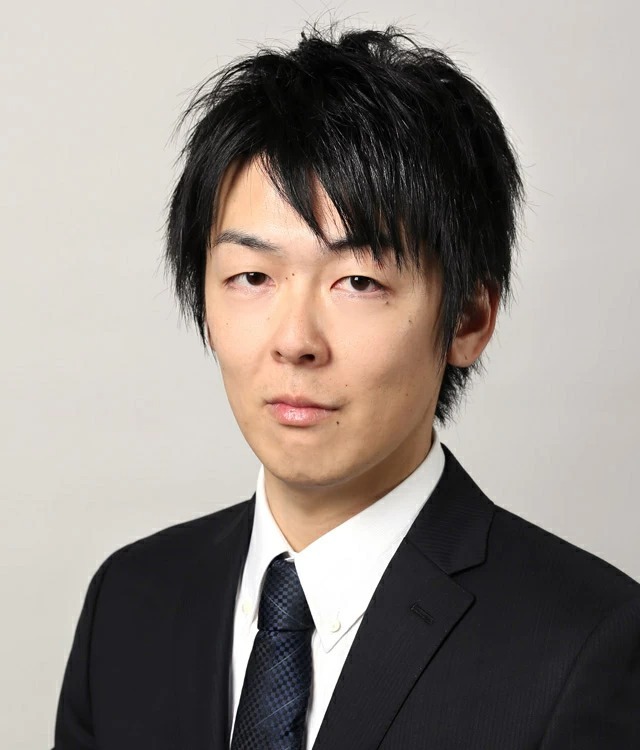
With the rapid development of biotechnology in recent years, it has become easier to modify the functions of biopolymers such as proteins and peptides, and biopolymers are starting to be used as material components. However, in most cases, natural biopolymers do not have features suitable for material use, and it has been difficult to prepare biopolymers suitably modified to show material function-oriented features. This is partly because the functional properties of biopolymers have been optimized for use in living organisms during the evolution process. We have studied the development of biopolymers with suitable modifications and/or control of biological functions such as molecular recognition and self-assembling capabilities based on polymer science and physical chemistry, in addition to bioengineering. Recently, to further development of biopolymers with desired functions and/or physical properties, we have been generating function-oriented biopolymers based on machine learning predictions using the functional property data of genetically engineered biopolymers. The high potential of biopolymers has already been proven, and by establishing a strategy to develop biopolymers with excellent material functions as re-evolved based on oriented functions, we hope to develop material chemistry that can contribute to various fields, including the environment, medicine, and energy.
Researcher Comment
It is a great honor to be selected as a recipient of the STAR grant, and I would like to express my deepest gratitude to all the contributors and selection committee members at Tokyo Institute of Technology. I would also like to take this opportunity to express my sincere appreciation to all the professors and collaborators who have supported me, as well as to the laboratory members who are working hard on our research. This support will encourage us to take on new challenges, and we will work hard to produce even better results.
Associate Professor Kyohhei Kitamura, Institute of Innovative Research
Research overview: A historical study of representations and discourses of celebrity in the visual media
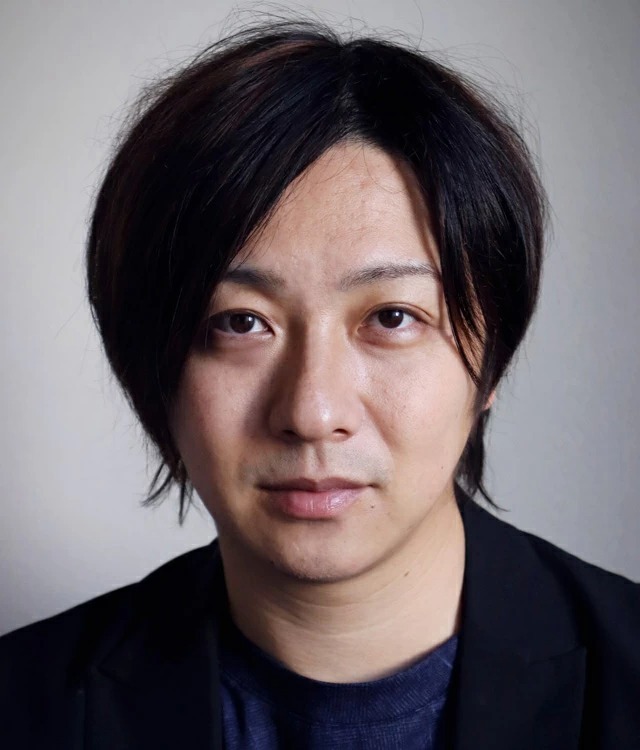
Born at the end of the 19th century, cinema created a completely different kind of celebrity and, as a mass medium, had a profound impact on popular culture. Subsequently, in Japan, television culture gave birth to idols, and as the internet spread throughout society, new platforms emerged, giving birth to YouTubers and Virtual YouTubers. My research mainly explores how celebrities are represented and valued in visual culture from the 20th to the 21st century from the perspectives of both media and gender theory. By historically analyzing the desires celebrities have elicited from the public, I hope to elucidate the government ideologies and gender norms in each period. I would also like to reconstruct the history of Japanese film, not as a history of filmmakers and their movies, but by depicting a history of visual culture, including stars, audiences, and technologies, from multiple perspectives, and by introducing a quantitative approach based on cinemetrics. In parallel to this research, through fieldwork, I will analyze communication between playground equipment and children in parks from the perspective of sociology and media theory, aiming to clarify the spaces and environments in which altruism is generated.
Researcher Comment
I am deeply honored to be selected as a recipient of the Support for Tokyo Tech Advanced Researchers (STAR) award and wish to express my sincere gratitude to the donors to the Tokyo Institute of Technology Fund. The above-mentioned research projects explore largely unknown fields, and I could not proceed without such generous support. My research is not limited to film studies, but also has a broad impact on adjacent disciplines. The study of playground equipment and altruism directly benefits society by creating an altruistic environment for children to play and learn. Your support will enable me to further my research.
Associate Professor Yuta Suzuki, Institute for Liberal Arts
Research overview: Action research on school reform
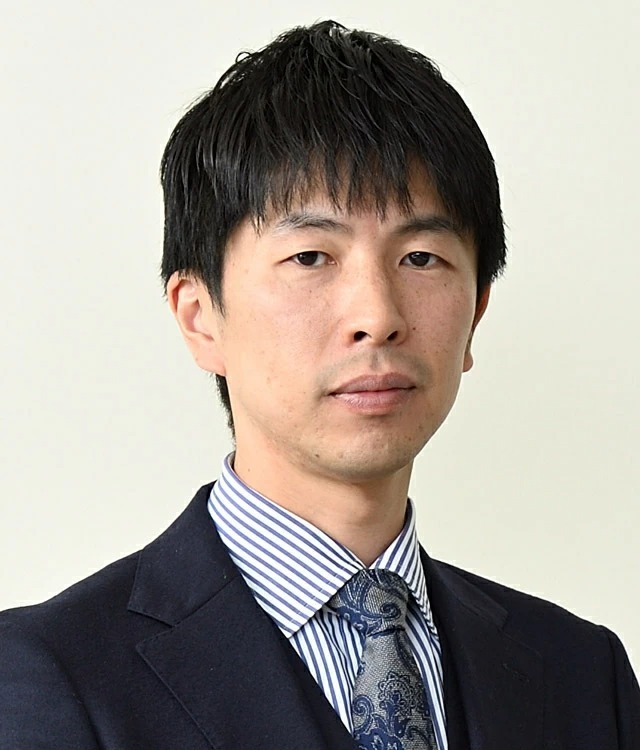
I am engaged in research and practice to realistically create schools that provide better education. This can be described as "action research" on "school reform" for "progressive education". Let me explain these three technical terms.
"Progressive education" is an attempt to make schooling centered on the experiences of children and students, whereas schooling in general, since the establishment of the modern education system, has been built around teachers, textbooks, and curriculum. "Progressive education" is a concept that many educators have been striving for worldwide, and has been pursued in practice in different times and places. At the same time, this goes to show that the realization of "progressive education" is fatalistically accompanied by great difficulties. It is thanks to the efforts of our predecessors that "progressive education" exists in today's society.
Educational research findings indicate that "progressive education" cannot be created in schools through the efforts of individual teachers, but requires teachers to work together as a community of educational professionals. Therefore, it is important to understand that the realization of "progressive education" requires the reform of schools, places embedded in institutional, policy, and organizational context.
I am pursuing "action research", which involves practitioners and researchers working together to reform reality. The key to "action research" is that it recognizes, better than anyone else, that such efforts are not easy to accomplish. "Action research" is characterized by its pursuit of real-world reform, while simultaneously theoretically pursuing reforms.
I am therefore engaged in "action research" that envisions the provision of better education in the tradition of "progressive education", pursues such progressive education by reforming schools, a complex place where policy and practice intersect, and creates progressive education through concrete "school reform" in collaboration with teachers faced with reality.
Researcher Comment
I am honored to have been selected for the Support for Tokyo Tech Advanced Researchers (STAR) grant. I am deeply grateful to the donors of the Tokyo Institute of Technology Found, who have created this support. I would also like to express my sincere gratitude to those who were involved in the review process.
As the first researcher in the humanities and social sciences to receive the STAR grant, I feel a great sense of responsibility given the tradition that the development of research based at Tokyo Tech has led to the development of society, and the tradition that the sharp brilliance of the humanities and social sciences has been demonstrated to society at Tokyo Tech, which focuses on the development of natural sciences.
I promise to fulfill my duty so that the development of my research will lead to the development of educational research and the development of a more equitable and democratic society. I would like to express my heartfelt gratitude to those who have constantly offered their guidance and support.
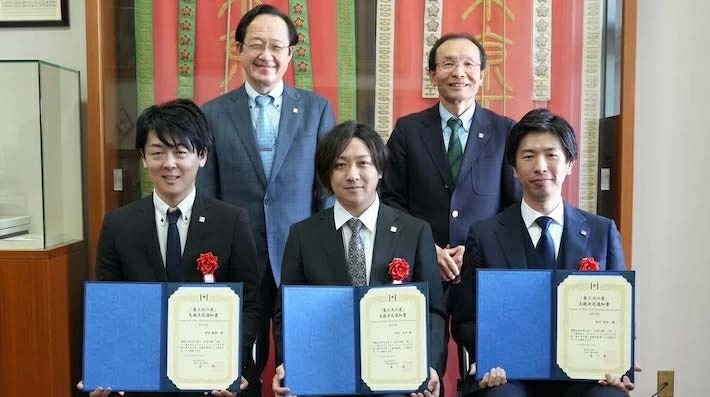
Front from left: Associate Professor Toshiki Sawada, Associate Professor Kyohhei Kitamura and Associate Professor Yuta Suzuki Back from left: President Kazuya Masu and Executive Vice President for Research Osamu Watanabe
About the STAR grant
Purpose
Funded by the Tokyo Tech Fund, this program aims to provide large-scale support to bright young researchers who create new value based on various unique research achievements in the fundamental sciences. This objective is in line with the Institutes mid-term goals and contributes to enhancing research capacity.
Selection process
Based on their career and research achievements, recipients are selected by the president and the head of the Office of Research and Innovation. Individuals cannot apply for this grant.
Selection criteria
- Young researchers engaged in a project which contributes to strategic policies on the national level
- Young researchers who demonstrated outstanding achievement in basic research
Eligibility
Early-career researchers with a title of associate professor or below (in principle under the age of 40)
- Support for Tokyo Tech Advanced Researchers [STAR] | Resaerch Support Activities | Office of Research and Innovation
- FY2021 STAR grant recipients selected | Tokyo Tech News
- FY2020 STAR grant recipients selected | Tokyo Tech News
School of Materials and Chemical Technology
—Encompassing the Disciplines of Science—
Information on School of Materials and Chemical Technology inaugurated in April 2016
School of Environment and Society
—Creating Science and Technology for Sustainable Environment and Society—
Information on School of Environment and Society inaugurated in April 2016
Institute for Liberal Arts
—Connecting Science and Technology with Society—
Information on Institute for Liberal Arts inaugurated in April 2016
This project is supported by Tokyo Tech Fund
Contact
General Administration Group, Research Planning Division, Research Promotion Department
Email ken.award@jim.titech.ac.jp
Tel +81-3-5734-3805





